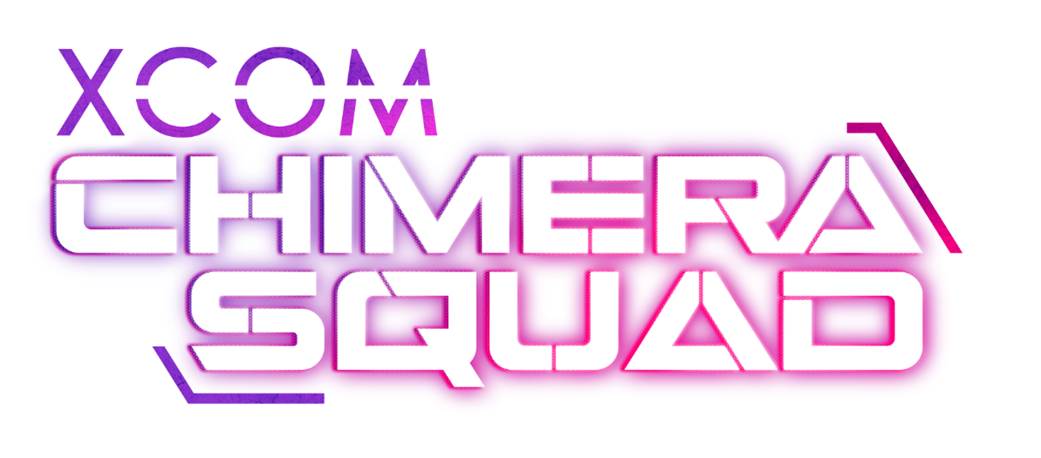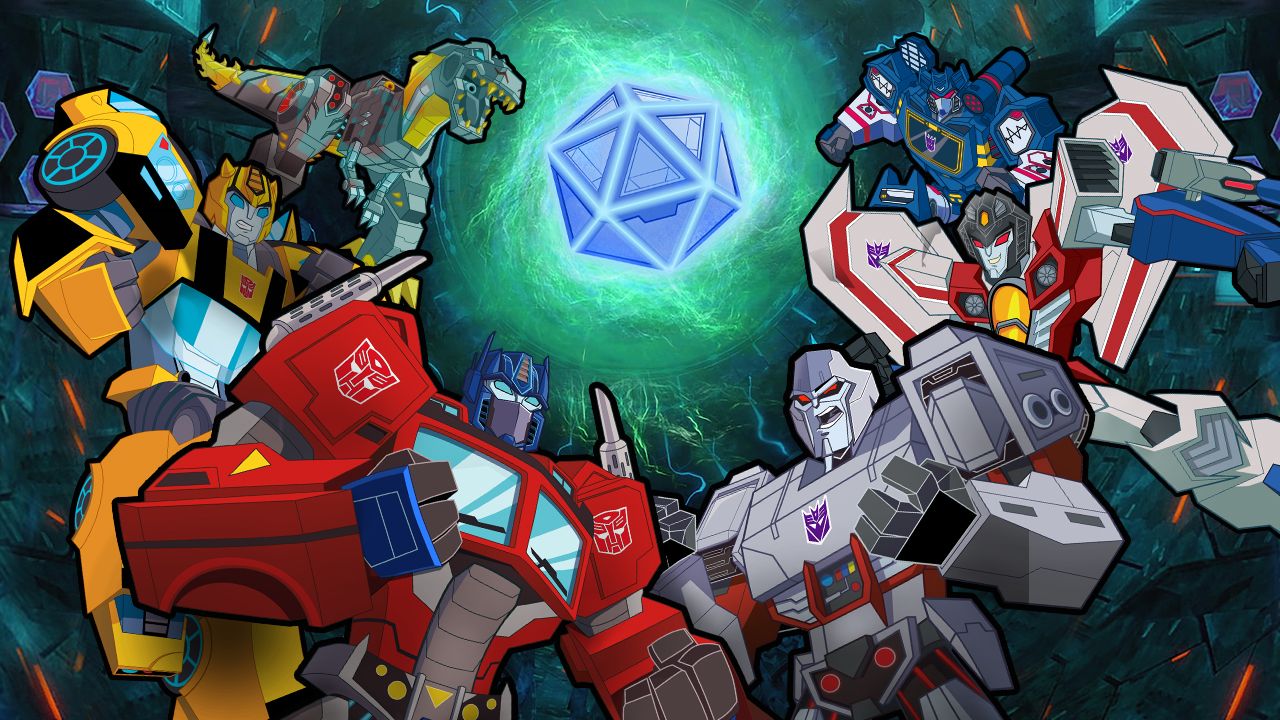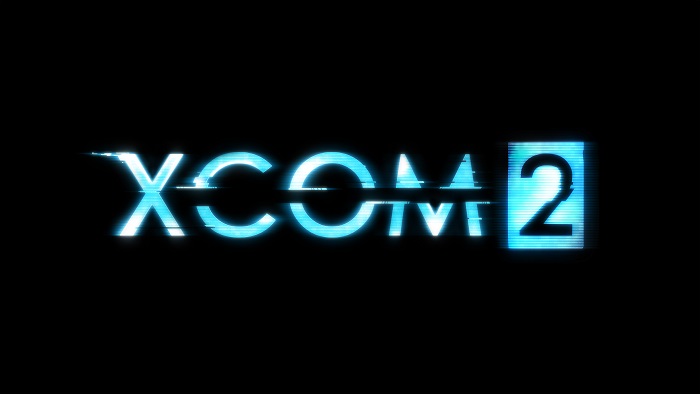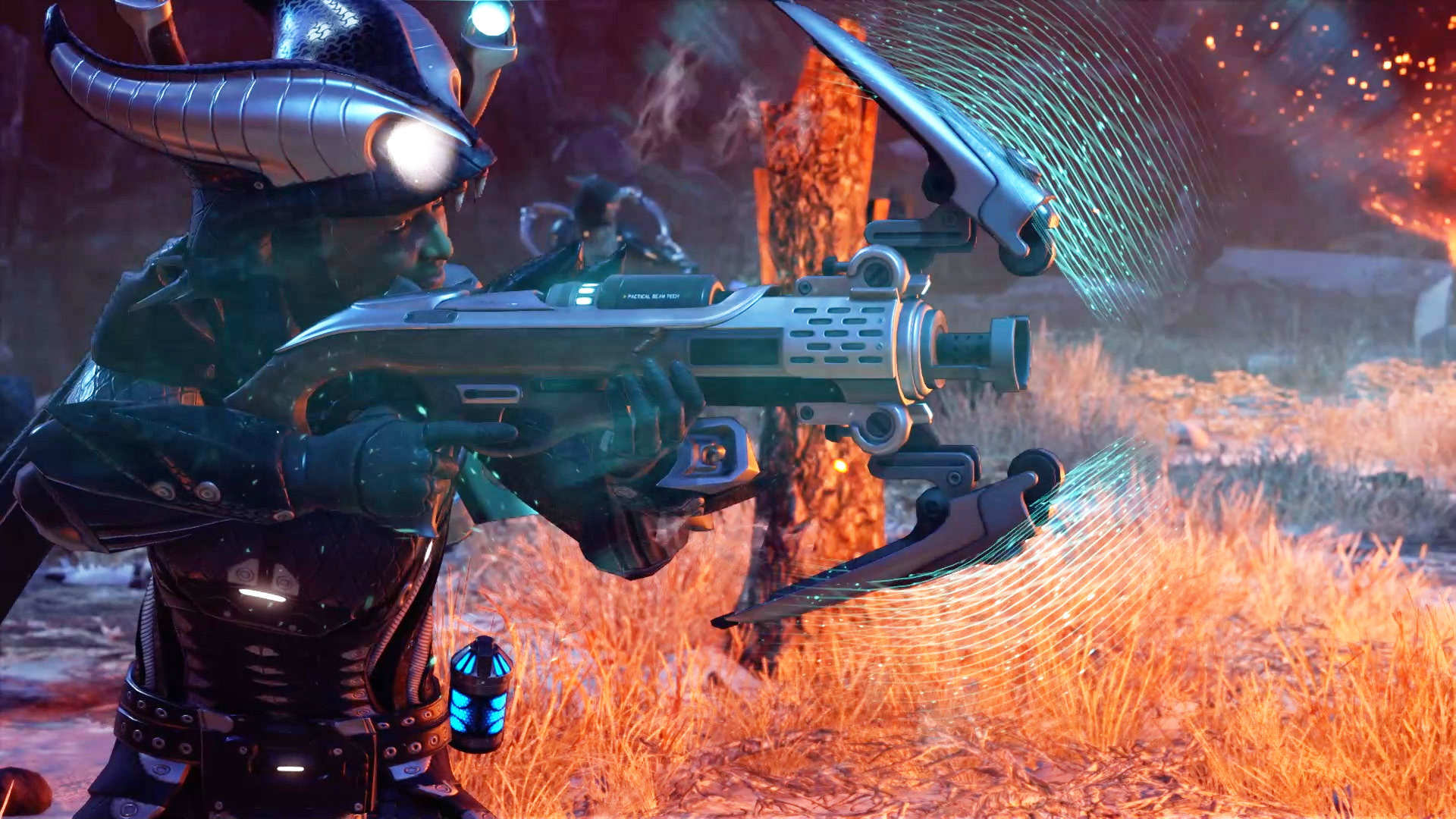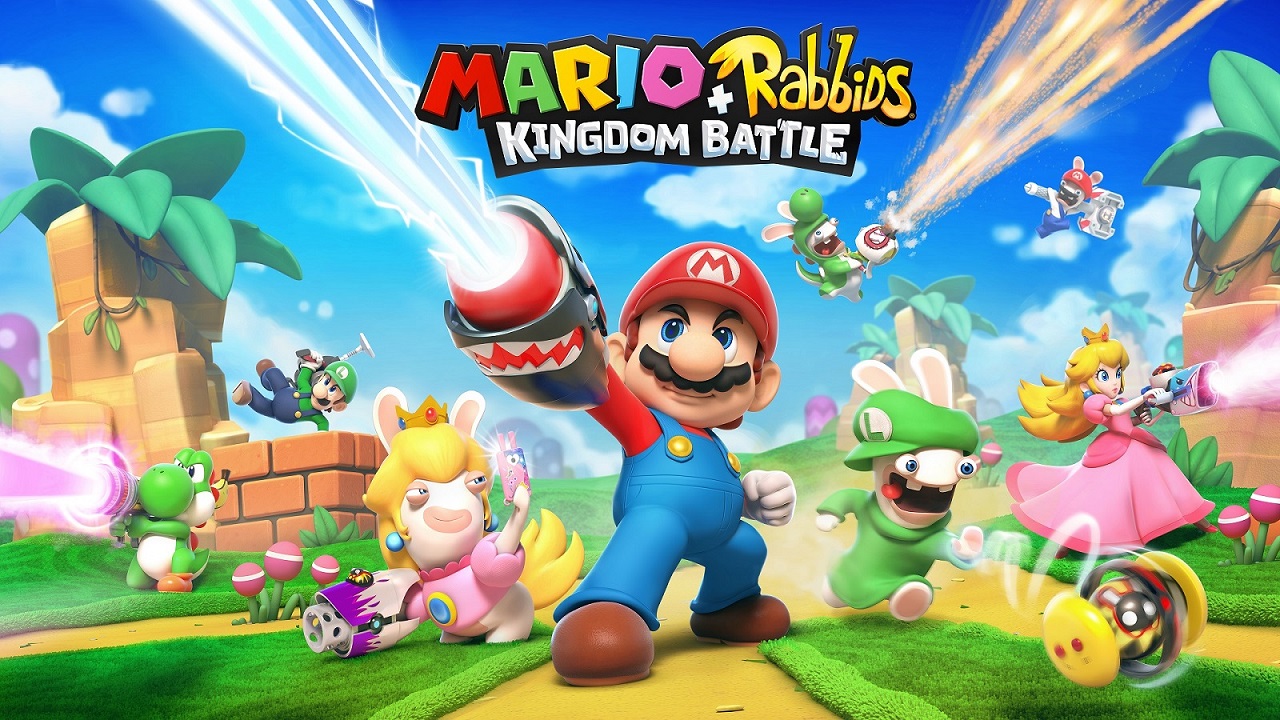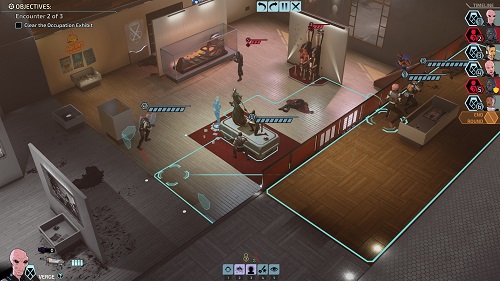
Tactical RPGs have long been one of my favourite genres in gaming, and yet I’ve never been able to make the jump to more strategy based tactical games like XCOM. Whether it’s the anxiety inducing management aspects or the somewhat less in-your-face story presentation, I’ve just not been able to stick to the series in the past. Enter XCOM: Chimera Squad, a change up to the series that alters the formula, focusing in a bit more on story, distinct characters and a new turn-based combat system, seemed like the perfect game to grab me. What I found was a tactical game that was engaging, fun, and a little bit stressful, but was so marred by technical issues that it brought the entire experience down.
The biggest change to the formula in XCOM: Chimera Squad comes with its characters. Unlike the previous games, which featured randomly generated characters, Chimera Squad focuses in on a pool of distinct characters, each with their own backstory, personality and unique abilities. You’re no longer making up your own stories, instead you’re learning about your characters and their past lives as you progress. I found that this approach helped me engage with the game and its characters in ways that previous ones didn’t, but it’s all still fairly light in terms of content.
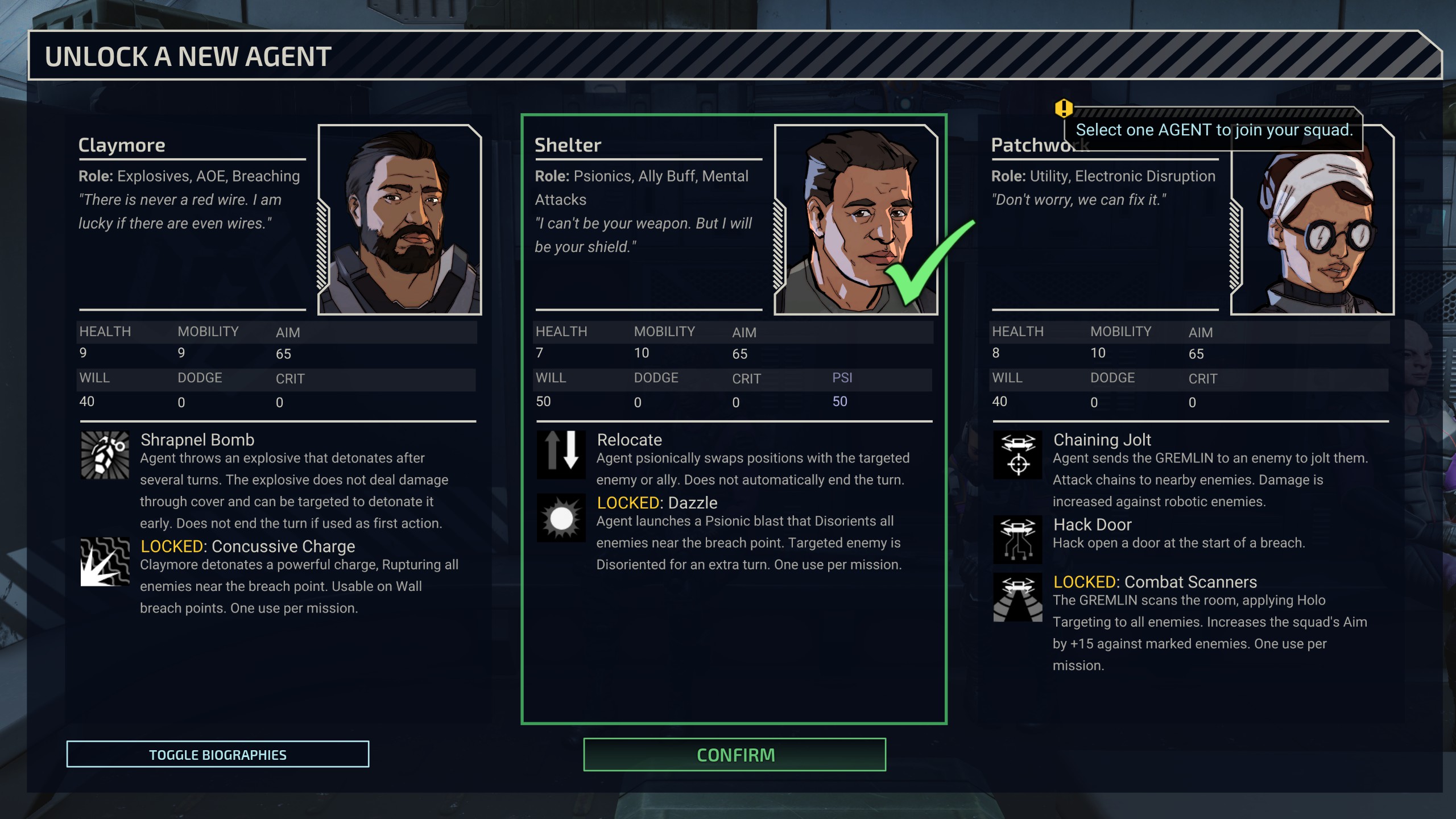
You’ll get an initial introduction to a character when they join your squad (you can periodically add a new recruit to your squad from a random selection of 3 from the overall pool), but from there most characters are largely ignored in the story beyond your initial pre-determined squad. Instead, you’ll overhear the odd conversation discussing their past and present lives while you’re on the main strategy menu. It feels like Firaxis wanted to try introducing some real characterisation to the game, which is welcome, but didn’t want to delve too deeply into it. It’s resulted in a sort of limbo that doesn’t feel totally satisfying.
This is helped somewhat by the game’s setting. Set five years after the conclusion of XCOM 2, humanity has won the war against ADVENT, and a new era of inter-species co-operation and tensions has begun. Chimera Squad takes place in City 31, one of many cities across Earth that now house both human and alien residents. The Chimera Squad itself reflects that diversity, made up of both human and alien agents working together instead of against each other for the first time.
There are so many opportunities throughout the game to really delve into the tensions that could arise from the setting and team, but it never really eventuates in any meaningful way. You get the odd comment in the squad about someone whose species was aligned with ADVENT or take on a gang that is hell-bent on creating a hybrid race superior to both humans and aliens, but it never really moves beyond shallow exposition. You’ll get the off mention of supposedly rising tensions or the increasing threat of an enemy faction during the game’s 2D cutscenes, but these aren’t really reflected in the environment or wider narrative.
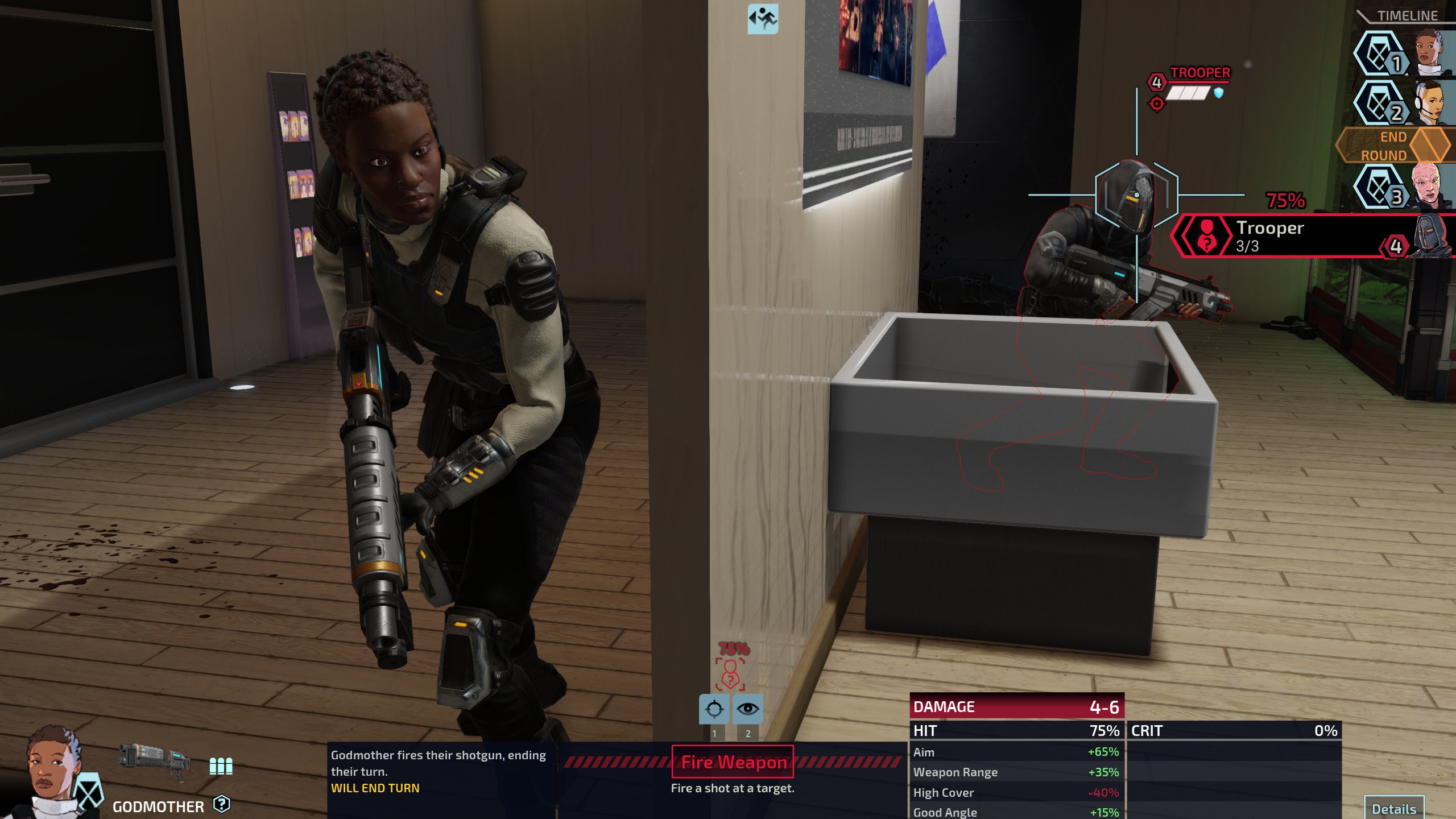
Issues within the team are overwhelmingly skin deep and paved over immediately, such as when Cherub mentions that he would love to have been involved in the war; A point that is mentioned, given a few more lines of dialogue and then ignored forevermore. This continues with the game’s antagonists, which are never given enough backstory or material to develop into anything beyond minor annoyances there to be wiped out. You find out about their general make up, a few details about their leader and their agenda, but they’re then not explored beyond this. Like its characters, Chimera Squad’s story feels like a half-step.
Where Chimera Squad actually starts to shine is its new combat mechanics and slightly toned-down management mechanics. Instead of taking all of your Agent’s turns at once, the game features a new turn order system that mixes both your characters’ and enemies’ turns together. This allows you to strategize in a new way, as you prioritise which enemies to go after. Do you go after the enemy that takes a turn immediately after you, in-turn negating the damage they would have dealt, or do you eat that hit and focus on a bigger threat that will come into the equation later on? It’s a highly engaging method of in-encounter combat and strategy.
This is augmented by the newly introduced Breach phase of combat, and your Agent’s unique abilities. At the beginning of each combat encounter you’ll decide how to breach the room/area. This involves assigning Agents to the different breach points available, with each point offering differing levels of bonuses/penalties, and some only being accessible by certain Agents/with certain Breach items. This can lead to some interesting decisions, like weighing up the benefits of an Agent entering combat with an additional action point, but also with a higher risk of taking damage as they enter the encounter. It’s a fantastic additional to the formula and one I’d love to see continue in the main series.
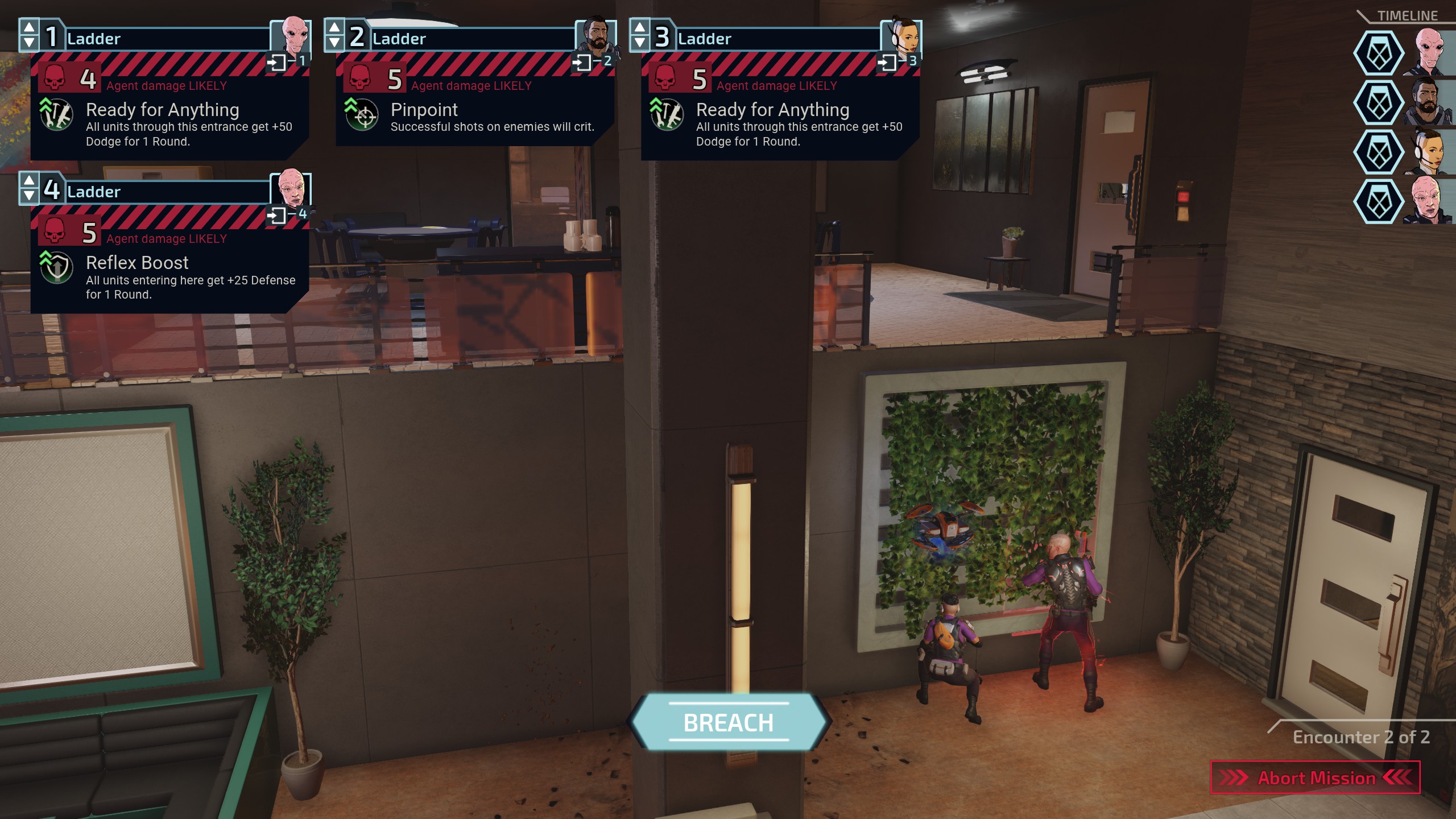
Breaching can also tie into the unique abilities of your Agents, such as Axiom’s chances to cause enemies near a door to be startled or panic as he kicks the door in and roars, or Cherub’s ability to draw attention to himself and absorb all damage once per mission. The abilities extend into combat as well, with each character having their own unique abilities, such as Claymore’s access to infinite shrapnel bombs or Verge’s mind-control abilities. Your team make up can have massive implications on how combat encounters will play out, making each encounter feel unique as you swap characters in an out of your combat squad as you also manage the game’s wider sim-mechanics.
As I mentioned earlier, XCOM: Chimera Squad features the same squad and city management mechanics of previous games, but somewhat toned down. This isn’t to say that they’re easy to manage, but they’re certainly less stressful than in the past. The game progresses a day at a time and you can take a number of different actions each day. You can assign Agent’s to Training, enhancing their stats or rehabilitating Scars earned during battle, Assembly, developing new items and upgrades to benefit you inside and outside of combat, or Special Assignments, which have myriad benefits from earning extra currency to reducing unrest in all Districts. Once you’ve assigned your Agents to additional activities it’s time to review the City Map and see what missions are available to you. There are always a minimum of two Situations to access at any one team, each with different rewards, with whichever Situation you don’t choose resulting in an increase in Unrest within its District. Allow Unrest to get too high and you’ll begin to generate City-wide Anarchy, with a game over resulting if too much Anarchy is generated. I never felt too overwhelmed by Unrest or Anarchy, but it certainly made the decisions I made more impactful and had me thinking a bit more deeply on what actions to take.
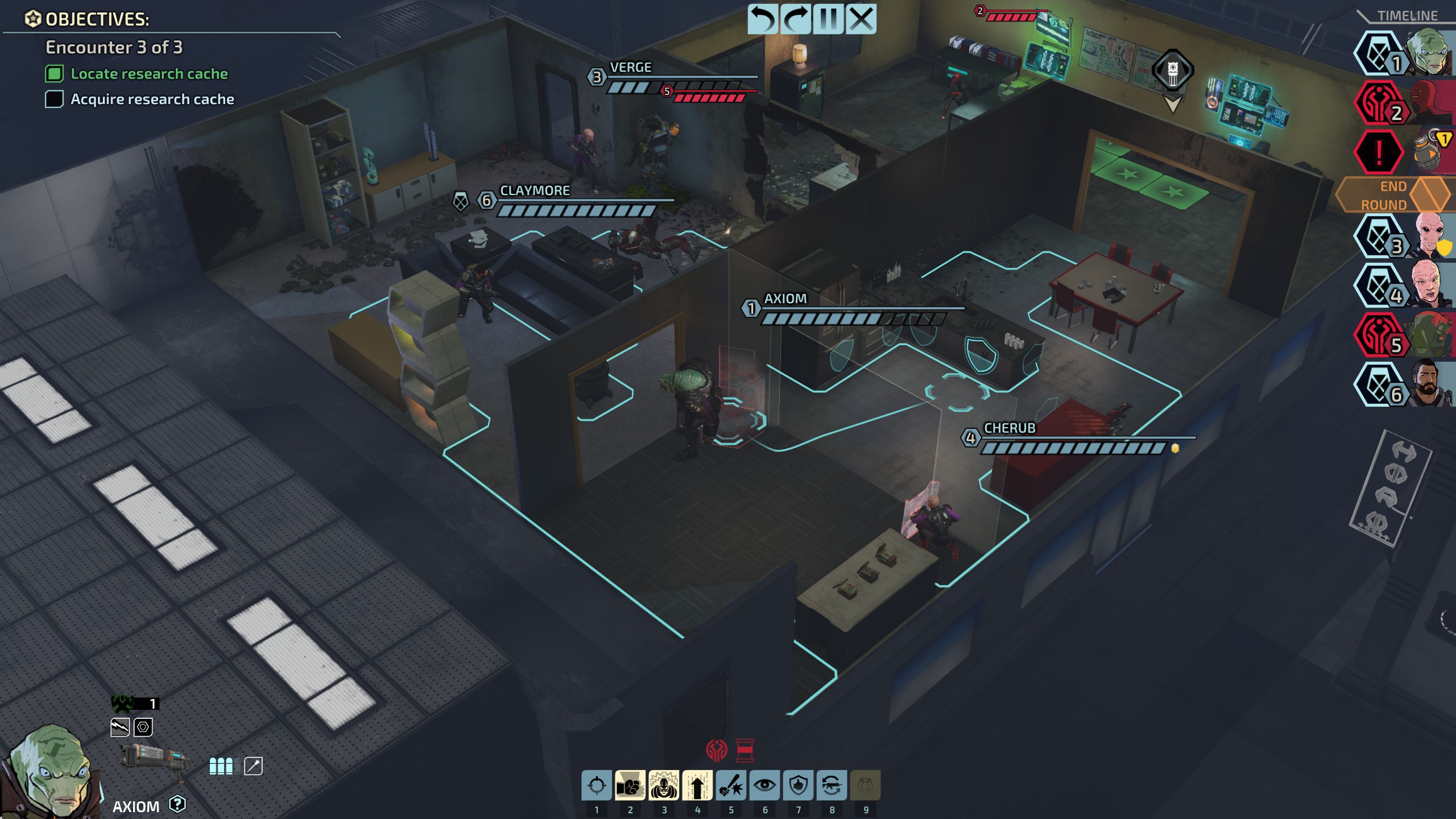
Throughout all of this, every moment I’ve enjoyed within the game has been met with an utterly frustrating technical issue ranging from smaller glitches and annoyances to both softlocks and hard crashes. This frustration is best represented by the session I had where the game crashed three times in an hour of playtime, twice during cutscenes and once as enemy reinforcements appeared mid-mission. In each of these instances the game locked up completely, leaving me with no option other than to restart my entire PC to get it running again, thankfully not losing too much progress due to the aggressively frequent auto-saving the game has. This is the worst experience I had, but I’ve also encountered a myriad of smaller issues as well. This has included the game running for 10+ seconds before an enemy turn triggers, Agent’s floating in the air behind cover, the camera randomly flinging itself across the map, targeting screens not triggering correctly when I select an ability, and Agent’s firing in literally the opposite direction of the enemy they have targeted. I honestly can’t believe that the game was released with this many unresolved technical issues.
Overall, XCOM: Chimera Squad feels like a half-step in a new direction, aimed to try and bring in new players while not alienating series veterans. What results is a game that doesn’t quite hit the mark in either direction but is still incredibly satisfying to play. Unfortunately, the experience is severely hampered by constant technical issues that leave me with the belief that it was rushed out to release. Once those issues are corrected XCOM: Chimera Squad would be a great entry point for people wanting to dip their feet into the series, but until then I’d suggest waiting unless you’re particularly interested in the series or genre.
Rocket Chainsaw reviewed Trials of Mana on Windows PC in 1440p at 120Hz using a Ryzen 1600x, 16GB of 3000MHZ DDR4 RAM, and an MSI Evoke OC 5700XT graphics card, with a copy provided by 2K.
- Combat changes add a new layer of strategy to combat - Scaled down micro-management reduces stress while still remaining impactful
- One of the most unstable games I've played in a long time - Setting and themes are underutilised - Story and characters feel like a half-step that never truly shine

